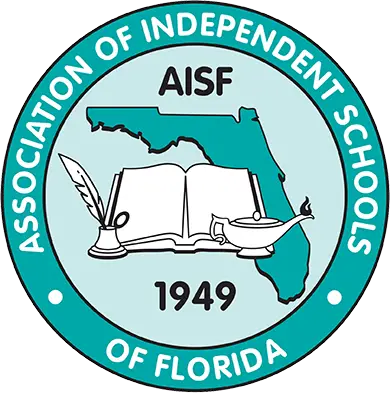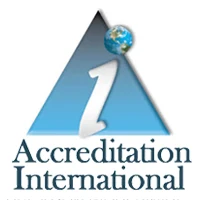Online Elementary School Courses
Accredited & Affordable
A quality education that is accessible 24/7 from the safety of home.

Grades K-5
Grades K-5
Courses designed to provide an essential academic foundation and preparation for Middle School.
At The Ogburn Online School, we offer online elementary school courses for students in Grades K—5. Our programs have been designed to ensure the all-round development of these young minds. We teach them fundamental skills like reading and writing, basic problem-solving skills, and critical thinking skills.
In addition, our elementary school program introduces children to a formal, online education setting with specific instruction and expectations. They learn to follow instructions, manage their time, and develop self-discipline. We aim to nurture our student's natural curiosity and encourage a love for learning.
Curriculum Highlights
Mathematics Grade 5 Mathematics students learn new key math skills and reinforce previously learned skills needed for secondary math courses. Skills include whole numbers, decimals, number theory, fractions, percent, probability, data analysis, making and using charts and graphs, Geometry, and measurement.
Reading Grade 5 Reading includes stories that develop comprehension, vocabulary, fluency, and writing skills. Comprehension skills include critical thinking, main ideas, recalling details, inference, drawing conclusions, sequencing, making connections, expressing opinions, character analysis, maps, and categorizing. Vocabulary skills include context clues, synonyms, antonyms, comparatives and superlatives, affixes, root words, and compound words. Fluency skills include reading with expression and correct phrasing. Writing skills include figurative language, dialogue, responses, opinions, sentences, and paragraphs. Students are required to write eight (8) book reviews from book selections at their appropriate reading level.
ELS (English Language Skills) Grade 5 Language Skills reinforce previously learned skills and introduces new concepts that enhance spelling, reading, grammar, and writing. Spelling skills include phonics, visual memory and discrimination, compound words, word endings, affixes, roots, and derivatives. Reading skills include vocabulary, context clues, sequencing, synonyms, and antonyms. Grammar skills include punctuation, types of sentences, conjunctions, parts of speech, verb tenses, capitalization, quotations, and double negatives. Writing skills include acrostic poems, narrative, persuasive, expository, express opinion, letter writing, compare and contrast, organizing, and charting.
Social Studies: Grade 5 Social Studies students engage in an across-the-curriculum format to broaden interests in self-awareness, family, school, community, country, people, holidays, and family or cultural traditions.
Science Grade 5 Science students learn to cite textual evidence to support analysis of what the text says explicitly and inferences drawn from the text. They determine the meaning of words and phrases in a text, including figurative, connotative, and technical meanings. Students read and comprehend science informational texts to determine or clarify the meaning of unknown and multiple-meaning scientific words and phrases, demonstrating an understanding of scientific word relationships. Students acquire and use accurately grade-appropriate general academic and domain-specific words and phrases, gather vocabulary knowledge when considering a word or phrase important to comprehension or expression, and draw evidence from literary or informational texts to support analysis, reflection, and research.
Language Arts engages the early reader with stories of interest while learning the alphabet, sight words, colors, and shapes. Skills are introduced through games, puzzles, and activities to color, such as retelling stories left to right, identifying characters and the main idea, recalling details, sequencing, types of text, parts of a book, purpose, understanding spoken words and syllables, making connections, asking, and answering questions, reading responses, phonics, and fluency.
Mathematics prepares the student for real-world math through activities, puzzles, and games that engage with numbers, matching, flashcards, building and drawing shapes, comparing written numerals, greater or less than, classifying objects, number lines, counting to 20 objects, fraction shapes, ordering, addition, subtraction, and measurement.
Science motivates students using short readings and activities. It covers various interests in life, earth, and physical science. Lessons are based on habitats, plants, senses, nutrition, animals, dinosaurs, rocks and soil, natural resources, astronomy, weather and seasons, matter, sound, light and shadows, simple machines, and magnets.
Language Skills includes spelling, grammar, and writing lessons that support the skills learned in the reading program. Skills include end rhyme, short and long vowels, r-controlled vowels, visual memory, double consonants, parts of speech, sentence structure, vocabulary, mechanics and usage, punctuation, word order, types of sentences, capitalization, complete sentences, lists, fiction, non-fiction, poetry, information, making a poster, interviewing.
Reading engages the student in short stories that build reading skills. Lessons incorporate phonics, comprehension, vocabulary, fluency, and writing, with short and long vowel sounds, blending word families, rhyming words, final sounds, word parts, double vowel sounds, recalling story details, real vs. fantasy, sequencing, sentence completion, prior knowledge, categorizing, follow directions, logical thinking, drawing conclusions, picture cues, making connections, reading charts and maps, antonyms, color words, word meaning, sound words, plural, possessive, expression and accuracy.
Mathematics provides students with various math skills that build upon each other and will be fully expanded in the next few years. Various skills include numerals, ordinals, fractions, place value, counting, skip counting, addition facts, addition one and 2-digit numbers, subtraction facts, subtracting one and 2-digit numbers, shapes, patterns, measurement, time, money, graphs, logic, and reasoning.
Science draws the student in with a story format. Students read and write to learn about seasons, senses, plants, animals, birds, fish, reptiles, amphibians, insects, butterflies, health, and the human body.
Social Studies enriches the student's geography knowledge through map skills. These skills include keys, legends, symbols, a compass, a rose, mental maps, finding locations, and following directions.
Language Skills build students' writing skills. Lessons include parts of speech, punctuation, and basic writing skills.
Reading engages the student in short stories that build reading skills. Lessons incorporate phonics, comprehension, vocabulary, fluency, and writing, with short and long vowel sounds, blending word families, rhyming words, final sounds, word parts, double vowel sounds, recalling story details, real vs. fantasy, sequencing, sentence completion, prior knowledge, categorizing, follow directions, logical thinking, drawing conclusions, picture cues, making connections, reading charts and maps, antonyms, color words, word meaning, sound words, plural, possessive, expression and accuracy. Students will write four book reviews: two fiction and two non-fiction stories. The book review format is provided in the book review lessons.
Mathematics reinforces previously learned skills and introduces new concepts. Skills include place value, number words, expanded form, rounding, ordering, addition, subtraction, regrouping, multiplication, division, shapes, fractions, time, money, and graphs.
Science draws the student in with a story format. Students read and write to learn about seasons, senses, plants, animals, birds, fish, reptiles, amphibians, insects, butterflies, health, and the human body.
Social Studies explores history, citizenship, community, geography, and map skills. Students use a variety of skills as they learn, such as labeling, matching, charting, following directions, making connections, road signs, keys, and legends.
Mathematics Grade 3 Mathematics builds number theory skills in place value, expanded form, rounding, ordering, addition, subtraction, multiplication, division, fact families, fractions, decimals, time, money, shapes, measurement, area, volume, and graphs.
Reading Grade 3 Reading students engage in developing active reading skills through fiction and non- fiction short stories. Comprehension, vocabulary, and fluency are the primary skills, with phonics and grammar interwoven into the lessons. Comprehension skills include recalling details, drawing conclusions, inference, categorizing, sequencing, main idea, critical thinking, expressing opinions, predictions, comparison, making connections, and story structure. Vocabulary skills include synonyms and antonyms, multiple-word meanings, rhyme, and homophones. Fluency encourages reading with expression, phrasing, and accuracy. Students are required to write eight (8) book reviews from book selections at their appropriate reading level.
ELS (English Language Skills) English Language Skills motivates students with exciting lessons that complement reading. Spelling skills include vowel and schwa sounds and compound words. Grammar skills include parts of speech, helping verbs, punctuation, comparative, superlative, and tenses. Lessons include writing forms of the following: lists, postcards, narratives, summaries, reports, descriptions, directions, and sentences.
Social Studies: Grade 3 Social Studies students participate in relevant studies on communities in early American history, which shaped the country and the state in which they live. Useful map skills include symbols, legends, compass roses, directions, mileage charts, weather, and geographical features. Science: Grade 3 Science draws the student in with a story format. Reading skills are reinforced, as the student's curiosity is addressed in science topics that include mammals, birds, weather, the solar system, heat, light, sound, and the human body.
Science: Grade 3 Science draws the student in with a story format. Reading skills are reinforced, as the student's curiosity is addressed in science topics that include mammals, birds, weather, the solar system, heat, light, sound, and the human body.
Mathematics Grade 4 Mathematics students gain a solid foundation in multiplication, division, factors, statistics, patterns, comparison, decimals, measurement, data, and analysis. Students use all skills to solve application problems.
Reading Grade 4 Reading presents a variety of fiction and non-fiction reading selections that include skill-focused activities in comprehension, vocabulary, and fluency. Phonics, grammar, and spelling are interwoven into the lessons. Comprehension skills include recalling details, making connections, sequencing, character traits, categories, drawing conclusions, inference, graphs, critical thinking, context clues, realism, fantasy, and fact vs. opinion. Vocabulary skills include synonyms and antonyms, figurative language, word meanings, analogies, context, and homophones. Fluency skills include reading with expression and accuracy. Students are required to write eight (8) book reviews from book selections at their appropriate reading level.
ELS (English Language Skills) Grade 4 English Language Skills introduces new grammar and writing skills to complement reading. Short reading selections are the theme for each lesson in spelling, grammar, and writing. Reading and vocabulary skills are interwoven into the lessons. Spelling skills include phonics, vowel sounds, consonants, blends, digraphs, compound words, r-controlled, affixes, and auditory discrimination. Grammar skills include types of sentences, punctuation, parts of speech, possessives, tenses, quotations, and titles. Writing skills include sentence and paragraph structure through several types of writing experiences.
Social Studies Grade 4 Social Studies introduces the United States government and its presidents. Students expand their map skills to other parts of the world.
Science Grade 4 students are introduced to various science areas as a foundation for content-specific science topics. Activities provide hands-on lessons that can be done at home and text assignments on the following topics: fossils, animals, birds, insects, the human body, nutrition, plants, the solar system, earth, weather, magnets, electricity, and machines.
Mathematics Grade 5 Mathematics students learn new key math skills and reinforce previously learned skills needed for secondary math courses. Skills include whole numbers, decimals, number theory, fractions, percent, probability, data analysis, making and using charts and graphs, Geometry, and measurement.
Reading Grade 5 Reading includes stories that develop comprehension, vocabulary, fluency, and writing skills. Comprehension skills include critical thinking, main ideas, recalling details, inference, drawing conclusions, sequencing, making connections, expressing opinions, character analysis, maps, and categorizing. Vocabulary skills include context clues, synonyms, antonyms, comparatives and superlatives, affixes, root words, and compound words. Fluency skills include reading with expression and correct phrasing. Writing skills include figurative language, dialogue, responses, opinions, sentences, and paragraphs. Students are required to write eight (8) book reviews from book selections at their appropriate reading level.
ELS (English Language Skills) Grade 5 Language Skills reinforce previously learned skills and introduces new concepts that enhance spelling, reading, grammar, and writing. Spelling skills include phonics, visual memory and discrimination, compound words, word endings, affixes, roots, and derivatives. Reading skills include vocabulary, context clues, sequencing, synonyms, and antonyms. Grammar skills include punctuation, types of sentences, conjunctions, parts of speech, verb tenses, capitalization, quotations, and double negatives. Writing skills include acrostic poems, narrative, persuasive, expository, express opinion, letter writing, compare and contrast, organizing, and charting.
Social Studies: Grade 5 Social Studies students engage in an across-the-curriculum format to broaden interests in self-awareness, family, school, community, country, people, holidays, and family or cultural traditions.
Science Grade 5 Science students learn to cite textual evidence to support analysis of what the text says explicitly and inferences drawn from the text. They determine the meaning of words and phrases in a text, including figurative, connotative, and technical meanings. Students read and comprehend science informational texts to determine or clarify the meaning of unknown and multiple-meaning scientific words and phrases, demonstrating an understanding of scientific word relationships. Students acquire and use accurately grade-appropriate general academic and domain-specific words and phrases, gather vocabulary knowledge when considering a word or phrase important to comprehension or expression, and draw evidence from literary or informational texts to support analysis, reflection, and research.
Why Choose Us?
25 years of experience
We deliver the quality online education you and your family have been looking for. Trusted by thousands every year, we are nationally accredited.
DEDICATED ACADEMIC SUPPORT
Contact our experienced academic advisors, teachers, and success coaches, who are always ready to provide ongoing help and support.
SELF-PACED SCHEDULE
With 24/7 access, students and families can devise a schedule that works best for them.
AFFORDABLE TUITION
We offer a variety of discounted tuition rates and payment plans. Visit our tuitions page for information on our many tuition options.
FULLY ACCREDITED
Ogburn School is regionally, nationally, and internationally accredited, which allows us to provide enrollment options to students all over the world.
CREDIT ACCEPTANCE
The Ogburn Online School will review and transfer in prior credits earned, as well as allow earned credits to transfer into another program.

Affordable Payment Options
Our Admissions Specialists can help determine which enrollment options and payment plans work best for you and your family.
Call us Today! (888) 729-6156
View Payment OptionsAffordable Payment Options
Our Admissions Specialists can help determine which enrollment options and payment plans work best for you and your family.
Call us Today! (888) 729-6156
View Payment Options
Enjoy Flexibility
Ready to talk?
For More Information or to Start the Enrollment Process, Call Us.


